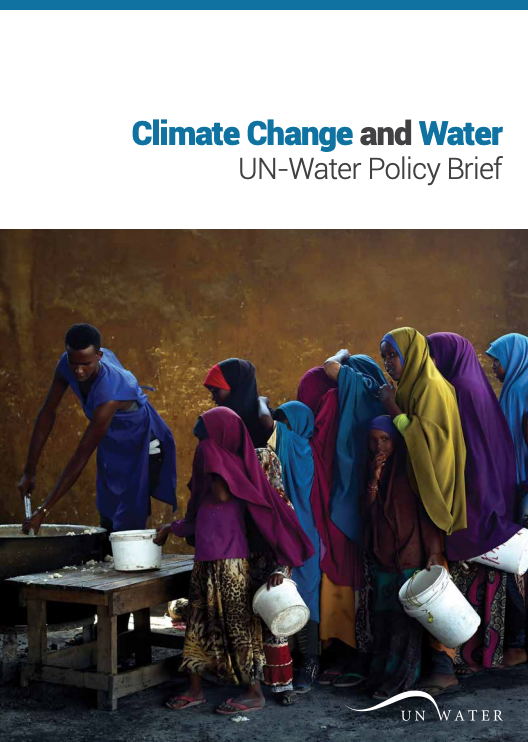UN-Water Policy Brief on Climate Change and Water


The global climate crisis is inextricably linked to water. Climate change increases variability in the water cycle, inducing extreme weather events, reducing the predictability of water availability, affecting water quality and threatening sustainable development and biodiversity worldwide.
Growing demand for water increases the need for energy-intensive water pumping, transportation, and treatment, and has contributed to the degradation of critical water-dependent carbon sinks such as peatlands. And, some climate change mitigation measures, such as the expanded use of biofuels, can further exacerbate water scarcity.
National and regional climate policy and planning must take an integrated approach to climate change and water management. Increased water stress
and meeting future demands will require increasingly tough decisions about
how to allocate water resources between competing water uses, including for climate change mitigation and adaptation. If we are to create a sustainable future, business as usual is no longer an option and water management needs to be scrutinized through a climate resilience lens.
We need more investment in improved hydrological data, institutions and governance, education and capacity development, risk assessment and knowledge sharing. Policies need to ensure the representation, participation, behavioral change and accountability of all stakeholders, including the private sector and civil society. Adaptation plans need to incorporate targeted strategies that assist lower-income populations – those who are disproportionately affected by climate change impacts – to navigate new conditions.
UN-Water Publications
UN-Water’s publications can be divided into two main groups: the publications that represent all Members and Partners of UN-Water – the collective products – and the publications that are under the UN-Water umbrella but produced by groups or individual UN-Water Members and/or Partners – the related products.
